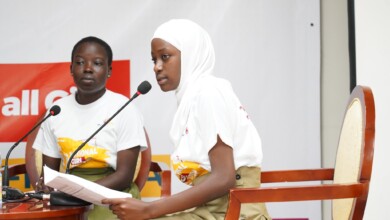Vaccines hesitancy: a dangerous and costly trend that puts everyone at risk

by Hajara Namale Shahista
When the government rolled out a Covid-19 vaccination programme in 2021, 32 – year-old Fatuma Nabankema (not real name) of Nansana-Yesu amala in Wakiso district, was reluctant to go the jab.
Three years later, she still finds no reason to get vaccinated against the pandemic that threatened world economies due its devastating impact on humanity.
Nabankema’s reluctance is due to her worry about the vaccines’ potential side effects and what she saw other people experience after vaccination.
Conspiracy theories that feed into narratives of oppression by the West and herbal reliefs for Covid-19 have made many Ugandans reluctant to get the jab uptodate.
“My neighbour’s husband got an erectile dysfunction after getting the Covid-19 jab,” Nabankema said, adding; “I laughed hard because to me it seemed funny even though someone was in pain.”
Just like Nabankema, a one Ivan Ssenabulya, a resident of Mukono town says his mother was not vaccinated due to misinformation and propaganda against the vaccines.
“As an adult, I have been vaccinated twice; one for Covid-19 at Kiswa health centre, Bugoloobi [near Kampala], and another for yellow fever from City Hall. For the yellow fever jab I did not get any side effects, but for Covid-19, I got mild effects like body weakening and felt a lot of pain at the site of injection after the Covid jab,” Ssenabulya said.
His mother was dissuaded by what he terms as propaganda and misinformation from politicians.
According to Dr Henry Kyobe, an epidemiologist in the Ministry of Health, social media has become a major tool for campaigns against vaccination.
“Anyone who spreads wrong information on vaccination of any sort it may not be now, but we will definetly get to you. Because if you don’t want to be vaccinated let it remain within but do not confuse others. We need to understand the aspects of vaccine hesitance in terms of context, interms of time and a particular vaccine and the target population,” Dr Kyobe said during a recent science media café meeting with health journalists in Kampala.
Vaccine hesitancy refers to delay in acceptance or refusal of vaccines despite the availability of vaccination services.
Vaccine hesitancy is complex and context-specific varying across time, place, and vaccines.
According to a 2015 World Health Organization (WHO) report, one in five children globally still do not receive routine life-saving immunizations, resulting in an estimated 1.5 million preventable child deaths annually.
This issue is often exacerbated by misinformation and complacency among parents.
In January 2024, the Ministry of Health announced plans to hold accountable, individuals who campaigned against Covid -19 vaccination, leading to low vaccine uptake. This decision followed a report by the Auditor General which revealed that Covid -19 vaccines worth Shs 28 billion had not been used and were slated for destruction.
Prof Pontiano Kaleebu, the executive director of the Uganda Virus Research Institute (UVRI), urges vaccine manufacturers to disclose the side effects of the vaccines to the public as an avenue for offering transparency and gain public trust to combat vaccine hesitancy, particularly in the global south.
“People who are against vaccination are a big threat to public health, and in fact, they list them among the top ten threats to public health. The population is what it is now because of vaccines, so we need to encourage vaccination. Those who are fighting it, are a threat,” Prof Kaleebu said.
The celebrated virologist noted that people who de-campaign vaccination have partly contributed to the growing vaccine hesitancy in the country, pointing out that many individuals hold negative beliefs based on myths, religion, and culture, which prevent them from taking vaccines.
However, he acknowledged that while many people have been misled by those spreading misinformation about vaccines, several others have genuine safety concerns. He cited an example from the 1950s when a poorly manufactured polio vaccine caused polio itself, leading to an uproar and a loss of trust in vaccination campaigns.
Dr Hanifah Naamala Ssengendo a pediatrician and public health specialist observed that vaccines play an important role right from childhood when immunization is started.
She advised parents to make it a must to take their children to hospitals to complete their vaccination circle as per guidelines of the Ministry of Health.
“Because a baby’s immune system is not fully developed at birth, babies face a greater risk of becoming infected and getting seriously ill. Vaccines help teach the immune system learn how to defend against germs. Therefore, vaccination protects your baby by helping build up their natural defenses,” she said.
The latest Uganda demographic health survey (UDHS) report by the Uganda Bureau of Statistics (UBOS) shows reduced deaths of children under five years from 90 per 1,000 live births in 2011, to 52 per 1,000 live births today, in significant part due to expanding vaccine coverage.




